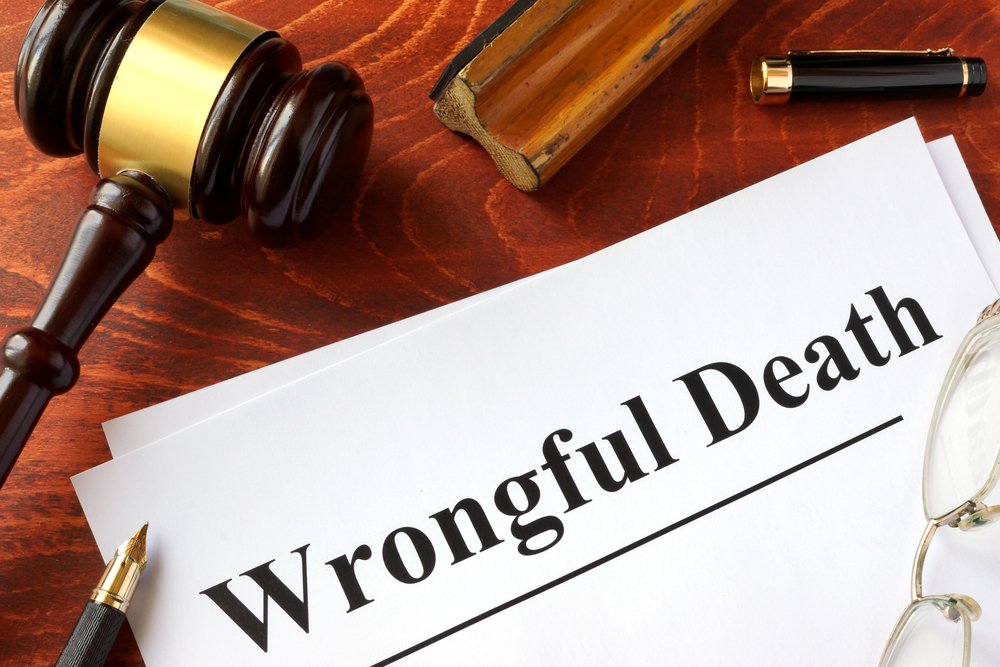It’s reasonable that filing a wrongful death lawsuit isn’t at the top of your priority list in the aftermath of a tragic loss. Because they are preoccupied with sorrow and practical problems, family members may wait weeks or even months to contemplate launching a lawsuit following the loss of a relative.
Fortunately, the law recognizes this by imposing a fair time restriction, known as the statute of limitations, on the family’s ability to claim damages.
Types of Florida Wrongful Death Claims

Wrongful death lawsuits may stem from a variety of actions. However, the following are some of the most prevalent causes of wrongful death:
- Unsafe working conditions, unsafe business and residential buildings
- Car accidents, pedestrian and bicycle accidents
- Medical negligence
- Hazardous goods
- Unintentional drowning
- Accidental poisoning
In Florida, who can file a wrongful death claim?
The surviving family members may make a claim on behalf of the victim’s estate under Florida’s wrongful death law. A person whose “wrongful conduct, carelessness, default, or breach of contract or guarantee” caused the victim’s death may be sued by the victim’s personal representative.
If the victim had survived and could have obtained damages from the defendant, the personal representative might instead file a wrongful death claim on behalf of the estate.
A personal representative of the victim may sue under Florida’s wrongful death legislation.
If the victim named a representative in his or her will, that individual may serve as the plaintiff. If the victim did not leave a will, the surviving spouse or one of the deceased’s other family members is the personal representative.
In a wrongful death case, the plaintiff is the personal representative. The representative, on the other hand, recovers any damages for the benefit of the victim’s surviving family members and/or the estate.
How are wrongful death lawsuits usually settled?

A lawsuit may be resolved swiftly if your personal injury lawyer and the defendant’s legal representation can simply reach an agreed settlement.
This, however, may not be the case. Your case may need to go to trial, which may take anywhere from one to four years on average to resolve. Even if your claim does not need the courts, it may take a long time for your personal injury lawyer to gather the necessary evidence for your case via their research.
There are some conditions that may necessitate the intervention of the courts in your case. If your deceased loved one did not leave a will, the courts will have to decide how their assets are split. A reputable attorney may be of great assistance in this area, as they will guide you through what can be a period of significant inter-family strain and struggle.
Even after your wrongful death lawsuit has been decided, there will be a period of time before the payment is completed. Following the completion of the litigation, the typical settlement claim will take roughly six weeks to resolve. This, however, is not a given. A variety of factors, such as clerical problems by insurance companies or delays in completing release paperwork, may cause the finalization to be delayed.
If your case has been settled for more than six weeks and you believe it is taking too long, your attorney may be able to assist you. We recommend contacting your attorney as soon as possible to ensure that the procedure progresses as rapidly as feasible.
How do I file a Florida Wrongful Death Claim?
A wrongful death lawsuit is filed in Florida on behalf of the deceased person, the family members, and the personal representatives. The representative must also add the names of the deceased’s estates to the claim. The representative may be listed on the estate plan of the deceased. If the deceased is no longer alive, an attorney is appointed by the court.
For a successful wrongful death lawsuit, you must follow Florida’s wrongful death law. Most wrongful death claims are filed within 2 years of the death of the person being sued.
Having an experienced personal injury lawyer can help you decide when you should file your lawsuit and help protect you from the risk of restitution.
What must be proven in a Florida wrongful death case?

Florida law requires the plaintiff to show the following factors in a wrongful death claim:
Tortious behavior by the defendant: The defendant’s willful, negligent, or reckless activities give rise to a claim for damages under personal injury or contract law.
The right of the victim to sue the defendant: If the victim had lived, he or she may have filed a personal injury claim against the perpetrator for damages.
Identification of the representative and his or her family: The surviving family members and a personal representative of the victim’s estate have been identified.
Causation and damages: The defendant’s actions resulted in physical or financial harm to the victim’s surviving family members or the victim’s estate.
How Much Money Could I Get From a Wrongful Death Claim?
While we appreciate that there is no way to place a figure on the death of a loved one, compensation may be a very vital element in ensuring your family’s ability to move ahead. You may have incurred significant medical bills or be experiencing financial insecurity as a result of missed pay.
There are also the often unexpected expenditures linked with funeral and burial fees to consider. A successful lawsuit will provide you with the degree of compensation you deserve, ensuring that these additional concerns do not further muddle your grieving process.
In a wrongful death case, compensation will be determined by a variety of variables. These are some examples of these factors:
- The claimant’s connection to the dead.
- The deceased’s income, both in terms of lost salary and the loss of future financial assistance from that individual.
- Other values that your loved one offered, such as the loss of emotional support and the influence on the dynamics of your family.
In Florida, the typical lawsuit is worth roughly $500,000. However, you should not assume that this is the maximum value of your case, since some settlements are substantially higher.
A personal review from an attorney is the best method to acquire an accurate estimate for your unique situation. Read more about Florida wrongful death statute of limitations here.









